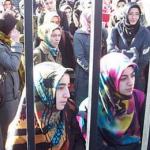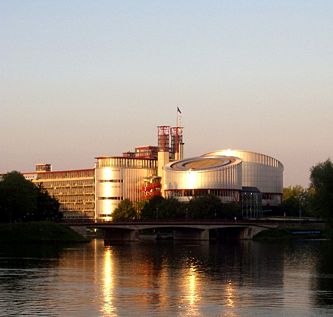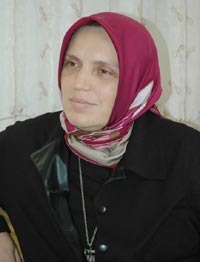ECHR Rules for Turkish Headscarf Ban
ECHR yesterday announced its decision in the 1998 lawsuit filed by Leyla Sahin and Zeynep Tekin. The court found that Turkey did not violate the ECHR's 9th Article on religious freedom. Jurists interpreted the verdict as "ECHR found restricted freedom enough for Turkey."
As a reason for their verdict the ECHR showed that applying headscarf ban in Turkey is necessary to provide for public order and for the freedom of those who do not wear headscarves in the predominantly Muslim country. The verdict states the ban has a legal basis in that the Turkish court found that wearing the headscarf is against the basic principles of the Republic.
The decision also indicates that restricting the headscarf could serve for a 'social need', like providing public order and protecting the freedom of those who do not wear the headscarf, since the headscarf has taken on a more political meaning in recent years. The verdicts mentions that ECHR is aware of radical political groups in Turkey that tries to impose their worldviews on society via their religious principles and political symbols
Leyla Sahin: Verdict will affect others as well
Leyla Sahin, 30, said that ECHR's verdict strengthened the ban in Turkey. She said she was surprised by the verdict, especially after she thought the court showed a very positive attitude when she attended the hearing on November 17, 2002. Sahin said, "The verdict surprised me very much. There are simple reasons. My case was not examined."
Sahin indicated that she is personally still suffering. She continued, "I did not index my life to the court. I applied there in 1998, and 6 years passed. The sad thing is that there are thousands of young girls who would like to study while wearing their headscarf. This is a verdict that will affect the lives of millions of young girls, not only mine. I do not think the court considered these things. Turkey's circumstances were totally ignored."
Leyla Sahin's lawyer Husnu Tuna, who was in Strasbourg for the reading of the verdict, noted that the right of education was not mentioned in the verdict's reasoning. Tuna said, "The ECHR reflects the mentality of February 28 with this verdict. It is more like a verdict of a high court in Turkey rather than the ECHR." (AIA/DA/YE)









